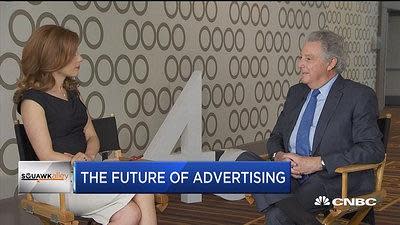Here's what the ad industry thinks of the massive Google boycott

The American Association of Advertising Agencies is gathering at its annual convention as the largest digital ad platform — Google (GOOGL) — faces a massive boycott over ad placement next to offensive and extremist content on YouTube.
And brands are in the midst of some big decisions: the Upfront ad sales period, when broadcast and cable channels pitch their new shows to advertisers, is already underway. The Newfronts, when digital ad platforms pitch their tools and inventory, starts May 1.
Chief marketing officers and ad agencies at the conference are discussing what Google has to do for their brands to feel safe on YouTube. "What we're hearing from members is it's time for a lot of these platforms to grow up, but they're still fairly young platforms" says 4A's president and CEO, Nancy Hill, of Google and Facebook (FB).
"And unlike these other platforms that we've had — television, radio, print — that have been around forever, they haven't really grown up into a place where you can measure and understand what's really being delivered."
Taco Bell (YUM)'s CMO, Marisa Thalberg, says she considers Google an important partner, but right now she's pulling back her brand's ad dollars until Google makes more changes. "We are on a pause ... because at the end of the day, context matters."
Mobile ad company Kargo, which only serves ads to sites featuring premium content, is benefitting from the Google boycott. "Brands are migrating those dollars now that their Google dollars are put on hold," says Kargo CEO Harry Kargman. "We're seeing companies like AT&T (NYSE:T) move their brand dollars to safer content places, and Kargo is one of those places."
Kargman, who founded Kargo 14 years ago, says he sees the ad world at a point of change. "What we're finally seeing is that marketers are waking up, and they're saying — 'just doing audience targeting at mass scale is not enough for us. We need to be guaranteed that we're running in great, brand-safe places, we need to know that our brand messages are actually aligned with the messaging on the page itself.'"
CEO of marketing giant IPG, Michael Roth, says brands and agencies are using this boycott to push for more transparency. "The best way to keep organizations accountable, is to do it with your pocketbooks, and I think that part of it frankly worked." Roth says some of IPG's clients are starting to return to Google, as it pulls out all the stops to show brands it's working to solve the problem.
Google says the problem is under control, saying in a statement from Chief Business Officer Philipp Schindler: "Many advertisers never left and many have decided to come back. While they know that no system can be perfect, they appreciate the actions we've taken and know we are taking this seriously and are committed to getting better and better."
Still, the timing of the boycott is powerful; brands are sure to push for more transparency and accountability as they lock in deals for the next year.
More From CNBC

